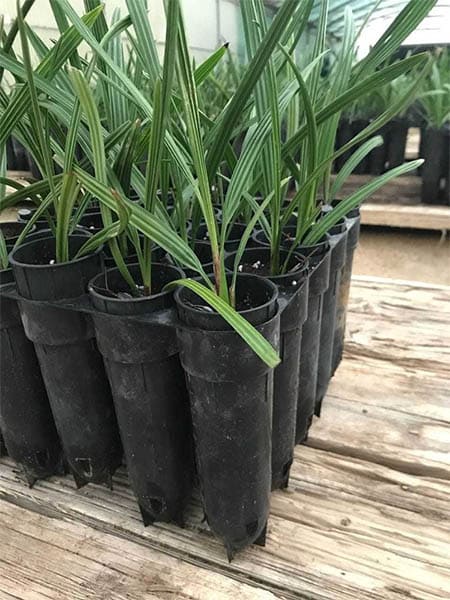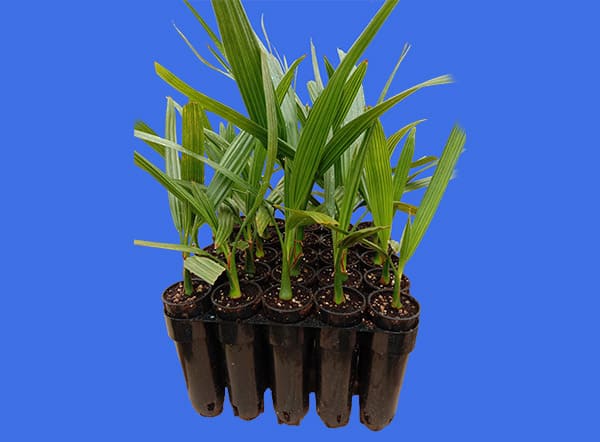Choosing a Tissue-Cultured Date Palm Plant: A Guide to Quality and Sustainability
The date palm (Phoenix dactylifera L.) is a cornerstone of agriculture in arid and semi-arid regions, prized for its sweet fruit and cultural significance. In recent years, tissue-cultured date palm plants have emerged as a preferred option for establishing date plantations, offering superior traits such as uniformity, disease resistance, and high productivity. However, selecting the right tissue-cultured plant requires careful consideration of several factors to ensure long-term success. Choosing Tissue-Culture Date Palms

Why Choose Tissue-Cultured Date Palms?
Tissue culture is a propagation method that uses advanced biotechnology to clone date palm plants under controlled laboratory conditions. This process produces genetically identical plants with desirable traits. Below are some key benefits:
- Uniformity: Tissue-cultured plants are genetically uniform, ensuring consistent growth, yield, and fruit quality.
- Disease-Free Plants: Plants produced through tissue culture are free from diseases and pests, reducing the risk of contamination in plantations.
- Faster Maturity: Tissue-cultured plants often establish and mature faster, leading to earlier fruiting.
- Scalability: Large-scale propagation of elite cultivars such as Medjool, Barhi, or Ajwa becomes feasible, meeting market demands efficiently.
- Preservation of Genetics: Tissue culture preserves the unique traits of elite date palm varieties, ensuring the integrity of high-value cultivars.
Key Factors in Choosing Tissue-Cultured Date Palms
When selecting tissue-cultured date palms, growers should evaluate the following factors to maximize their investment:
1. Reputable Supplier
- Choose a supplier with a proven track record in producing tissue-cultured plants.
- Verify certifications and adherence to international quality standards (e.g., ISO, FAO guidelines).
- Request information on the mother plant (the source of the genetic material) to ensure its quality and authenticity.
2. Varietal Suitability
- Select a variety suited to your climate, soil type, and market needs. Popular tissue-cultured varieties include:
- Medjool: Large, soft dates with high market value.
- Barhi: Sweet, soft dates consumed fresh.
- Deglet Noor: Semi-dry dates ideal for long storage and export.
- Piarom: High-quality semi-dry dates known for their export potential.
- Ensure that the selected variety aligns with local growing conditions and market demand.
3. Plant Quality
- Inspect the plants for uniformity in size, structure, and vigor.
- Ensure that the root system is healthy and well-developed.
- Avoid plants with physical damage, discoloration, or signs of stress.
4. Genetic Fidelity
- Verify that the plants are true-to-type, meaning they are genetically identical to the desired cultivar.
- Request molecular marker testing reports or other proof of genetic fidelity from the supplier.
5. Disease-Free Status
- Confirm that the plants have undergone rigorous phytosanitary checks to eliminate pathogens such as Fusarium wilt or Bayoud disease.
- Look for certification of disease-free status from a credible authority.
6. Acclimatization
- Tissue-cultured plants must undergo proper acclimatization before field planting to adapt to external environmental conditions.
- Check whether the plants have been hardened in a greenhouse or nursery to withstand field conditions.
7. Supplier Support
- A good supplier should provide technical support, including guidelines on planting, fertilization, and pest management.
- Opt for suppliers who offer post-sale support and monitoring services.
Establishing Tissue-Cultured Date Palms in the Field
After selecting high-quality plants, proper management during planting and establishment is crucial for success:
Site Selection
- Choose a site with adequate sunlight, well-drained soil, and access to water for irrigation.
- Test soil for salinity and nutrient content, and amend it as necessary.
Planting Technique
- Plant during optimal seasons to minimize transplant shock.
- Ensure proper spacing between plants to allow for growth and air circulation.
Irrigation and Nutrition
- Use efficient irrigation systems like drip irrigation to optimize water use.
- Provide balanced fertilization based on soil tests and plant requirements.
Monitoring Growth
- Regularly monitor plants for signs of stress, pests, or nutrient deficiencies.
- Implement integrated pest management (IPM) practices to maintain plant health.
Challenges in Tissue-Cultured Date Palm Cultivation
While tissue-cultured date palms offer numerous advantages, growers may encounter challenges, such as:
- Higher Initial Costs: Tissue-cultured plants are typically more expensive than traditional seedlings due to the advanced technology involved.
- Solution: Focus on long-term benefits, such as higher yields and reduced losses due to uniformity and disease resistance.
- Acclimatization Issues: Some plants may struggle to adapt to field conditions if the acclimatization process is inadequate.
- Solution: Ensure plants are properly hardened before planting.
- Limited Availability of Varieties: Not all date palm varieties are available as tissue-cultured plants.
- Solution: Work with research centers or specialized suppliers to access a broader range of varieties.
Conclusion for Choosing Tissue-Culture Date Palms
Choosing tissue-cultured date palm plants is a strategic investment for growers aiming to establish productive and sustainable plantations. By selecting plants from reputable suppliers, ensuring genetic fidelity, and implementing proper field management, growers can maximize their returns while contributing to the growth of the date palm industry.
Tissue-culture technology represents the future of date palm cultivation, enabling the preservation of elite cultivars and meeting the rising global demand for high-quality dates. With careful planning and informed decision-making, growers can harness the potential of this innovative approach to revolutionize their plantations.



